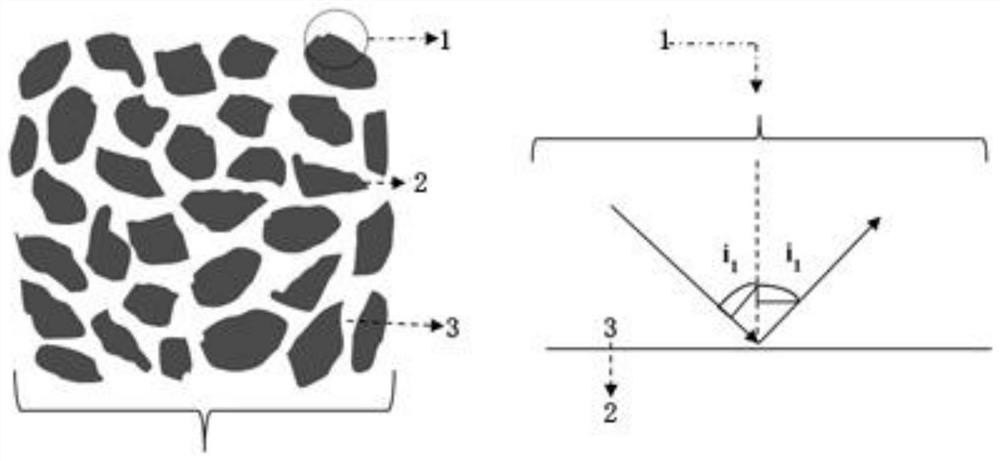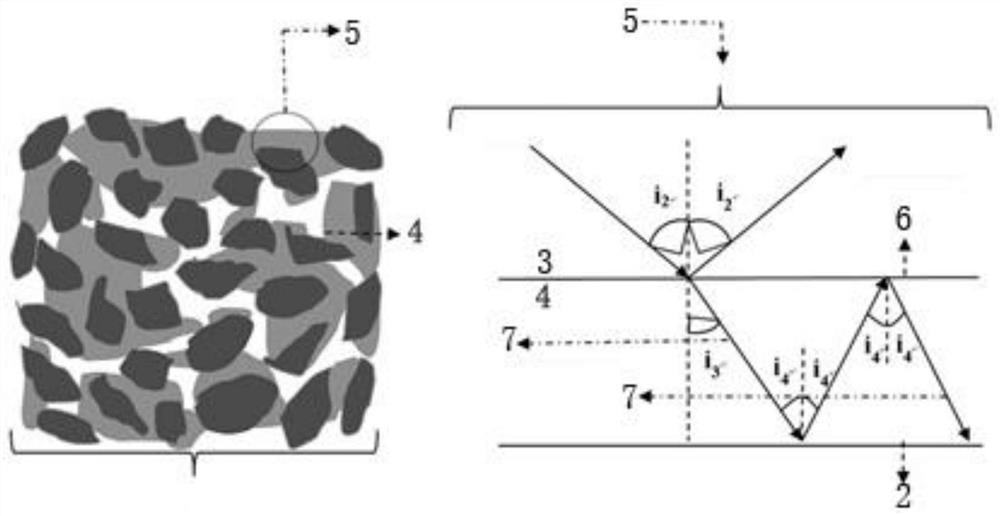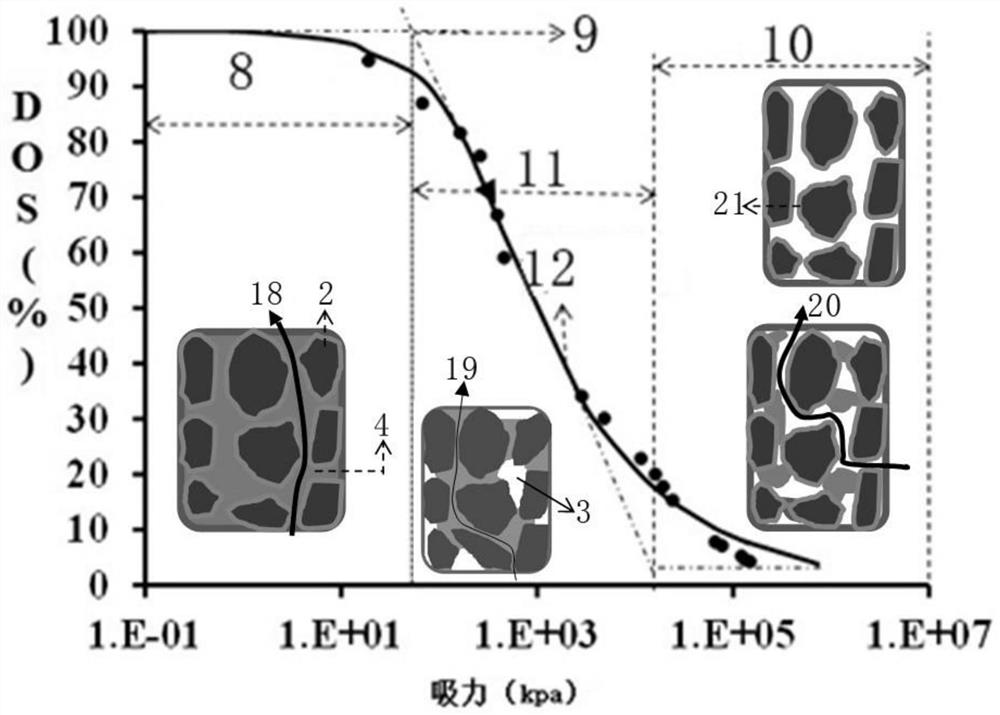A Method of Measuring Soil Suction Using Light Reflection Theory
A soil suction and light reflection technology, applied in the field of soil suction measurement, can solve the problems of high cost of interference, inability to measure the range of soil suction, and achieve the effect of low cost, no invasion and damage, and increase the applicable range.
- Summary
- Abstract
- Description
- Claims
- Application Information
AI Technical Summary
Problems solved by technology
Method used
Image
Examples
Embodiment
[0035] A method for measuring soil suction using light reflection theory, such as Figure 5 As shown, it mainly includes the following steps:
[0036] Step S1: According to the brightness difference between dry soil and wet soil. The basis for soil suction measurements using color analysis techniques was thus established. The reflection phenomenon in dry and wet soil is shown in Fig. 1. Light passes from one medium to another at the air-moisture interface. When light strikes an air-moisture interface, it undergoes both reflection and refraction. Light cannot enter the soil particles because soil is an opaque medium. Therefore, no refraction occurs at the air-soil interface. Therefore, the main part of incident light comes from dry soil as shown in Fig. 1(a). Due to this phenomenon, dry soil appears brighter. In the case of wet soil, light enters water from air, and refraction can be observed at the air-moisture interface as shown in Fig. 1(b). This refracted ray is inc...
PUM
 Login to View More
Login to View More Abstract
Description
Claims
Application Information
 Login to View More
Login to View More - R&D
- Intellectual Property
- Life Sciences
- Materials
- Tech Scout
- Unparalleled Data Quality
- Higher Quality Content
- 60% Fewer Hallucinations
Browse by: Latest US Patents, China's latest patents, Technical Efficacy Thesaurus, Application Domain, Technology Topic, Popular Technical Reports.
© 2025 PatSnap. All rights reserved.Legal|Privacy policy|Modern Slavery Act Transparency Statement|Sitemap|About US| Contact US: help@patsnap.com



